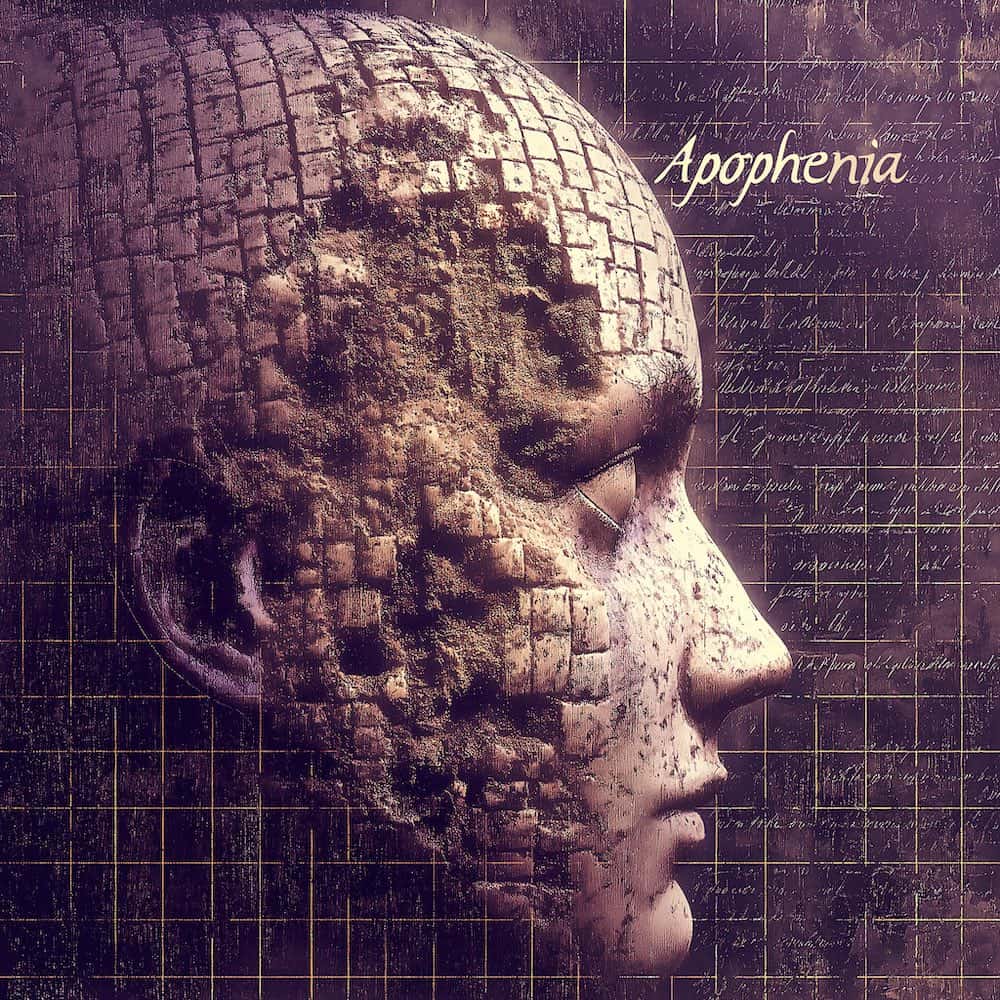Michael Burke’s latest single “Apophenia” arrives like a long-lost frequency finally finding its signal. A track that’s part pop experiment and part indie rock journey, it heralds the return of a songwriter who once walked away from music, only to find himself pulled back in by forces too strong to ignore. A second single from his new EP A Strange Mistake to Make, “Apophenia” exemplifies the tensions and delights of marrying pop accessibility with the eccentric—an art Burke has long been quietly perfecting.
Born out of what Burke describes as “pretentious pop in 6/8,” “Apophenia” feels at once controlled and chaotic. The track bursts out of the speakers, layering auto-tuned vocals over dissonant guitar solos and delicately fingerpicked acoustic guitar lines, tied together with glitchy, distorted percussion. It’s an exercise in contrasts that might, in another artist’s hands, feel disjointed, but under Burke’s meticulous production, it unfolds with startling cohesion.
If there’s a recurring theme in Burke’s career, it’s the tension between order and chaos, and “Apophenia” is the ultimate expression of that duality. Burke has spent years mastering both songwriting and the technical craft of music production. He’s a veteran in the audio world, working with companies like iZotope and Sonos to develop groundbreaking tools like Neutron and Ozone. But his personal journey—much like the song’s very title—reflects a pattern of finding meaning amid randomness. Apophenia, defined as “the tendency to perceive a connection or meaningful pattern between unrelated or random things,” plays out in the song’s lyrics, its construction, and even in the narrative arc of Burke’s life.
It’s hard to discuss Burke’s work without diving into the backstory that shapes it. The NYC-based producer, recording engineer, and songwriter seemed to have put music behind him after the release of his 2014 EP Pink Elephants & Saccharine Smiles (under the band name Lilted). In a move that echoes the creative highs and lows experienced by many artists, Burke left the music world to pursue a career in software development—earning a master’s degree in the field, getting married, moving to the suburbs, and working with tech giants like iZotope and Sonos.
But somewhere along the way, the “call” of music resurfaced—strong, undeniable, and more urgent than ever. It’s here that the idea of apophenia becomes personal: a seemingly unrelated series of events, life choices, and professional pivots began to form a pattern that Burke couldn’t help but notice. So he returned to music in 2021, moved to Manhattan, and earned another master’s—this time in songwriting from NYU. His re-entry into the music world culminated in A Strange Mistake to Make, the EP from which “Apophenia” is drawn.
Though grounded in the indie rock and pop scenes, Burke’s sound has always carried a sense of complexity, both technically and emotionally. He has an almost obsessive attention to detail, with a mind trained by years of work in both audio engineering and software development. The layered production of “Apophenia” is no accident; it’s the product of a mind fascinated by how different elements interact. There’s beauty in the dissonance, a chaotic energy that never feels out of control, perhaps a reflection of the balance Burke has learned to strike between his technical side and his emotional, creative side.
“Apophenia” was initially an assignment for a songwriting class at NYU, but it quickly grew beyond the confines of a classroom exercise. The playful lyrics use the concept of apophenia to string together seemingly disparate ideas—much like how Burke has stitched together different parts of his own life into a cohesive whole. Loosely inspired by his experiences going through a divorce, the song explores how we all look for connections, patterns, and meaning in the chaos of our lives. For Burke, music became the pattern that reasserted itself in his life, a lifeline in a sea of uncertainty.
Vocally, the track is awash in autotune—a creative decision that seems less about correcting imperfections and more about creating an otherworldly effect. It’s almost as if Burke’s voice is emerging from a distant, digital ether, grounding the otherwise cosmic swirl of the instrumental. Beneath the autotuned layers, there’s a rawness and vulnerability that make the song feel intimate despite its larger-than-life production.
As a producer and engineer, Burke has long been fascinated by sound itself—the quirks and imperfections that make it human. His work on “Apophenia” reflects this fascination, blending distorted beats and dissonant melodies into a pop framework that both challenges and embraces its own form. There’s a philosophical depth to this process, a reflection of the same qualities that led him to pursue degrees in both songwriting and software development. Burke, in many ways, represents the intersection of those two worlds—the creative and the technical, the artist and the engineer, the seeker of patterns and the creator of chaos.
After years of stepping away from music, Burke’s return feels like the final act in a long arc of self-discovery. And as much as “Apophenia” is a personal statement, it’s also a universal one: we all look for patterns in the random, connections between the unconnected. For Burke, those patterns have emerged in the form of music, a force he tried to walk away from but couldn’t escape. The call was too strong.
With A Strange Mistake to Make, Michael Burke reclaims his place in the indie music scene, but this time with the confidence of an artist who has not only mastered his craft but also made peace with the unpredictable nature of life itself. “Apophenia” is the sound of an artist in full control of his chaos, turning it into something beautiful.
Garth Thomas

